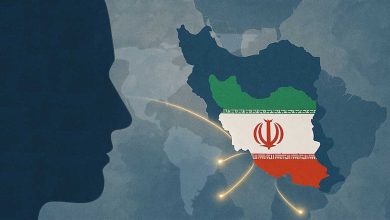Digital Diplomacy

Digital diplomacy refers to the use of modern communication and information technologies to guide and advance a country’s foreign policy. The emergence of social media, artificial intelligence, and other digital technologies has not only transformed communication tools but has also fundamentally influenced the nature of international relations. In today’s world, countries no longer engage solely through traditional diplomatic channels. Instead, by leveraging digital tools, they influence both domestic and international public opinion and actively participate in global policymaking processes.
Modern technologies have changed traditional diplomatic methods, enabling countries to pursue their foreign policy goals through new means. “Soft power” is one of the key elements in foreign policy, and nations use digital tools to enhance it. For example, South Korea has successfully projected a positive image of itself by promoting cultural content such as music and TV series. Through social media, it has strengthened its cultural identity and indirectly advanced its foreign policy objectives.
One of the most significant impacts of digital diplomacy is the possibility of direct communication between policymakers and the people of different countries. Diplomats now use social media platforms such as Twitter, Facebook, and Instagram to announce official positions, correct misinformation, and influence public opinion. For instance, foreign ministers from countries like the United States, the United Kingdom, and the European Union regularly use Twitter to communicate with global audiences and to share messages directly during times of crisis.
Digital technologies have also become crucial tools for managing international crises. Social media can play a pivotal role in either easing or escalating tensions. During the Russia-Ukraine crisis, both sides used digital tools to disseminate information, garner international support, and present their own narratives. The Ukrainian government launched online campaigns to gain global backing and achieved relative superiority in the “war of narratives.” Conversely, Russia utilized state-run digital media and social platforms to promote its narrative and respond to sanctions.
Major world powers now use digital tools not only to manage their foreign policy but also to influence domestic politics in other countries. One of the most notable examples was the alleged Russian interference in the 2016 U.S. presidential election through digital campaigns and the spread of fake news. This case demonstrated that digital diplomacy can have cyber and security dimensions, with effects extending far beyond traditional diplomatic communication.
The Hong Kong protests of 2019 and 2020 also serve as a notable example of digital diplomacy’s influence on foreign policy and global public opinion. Hong Kong protesters used social media platforms like Twitter, Telegram, and Reddit to organize demonstrations, report police crackdowns, and garner international support. With hashtags such as #StandWithHongKong, they captured the attention of global media and Western politicians. In response, the Chinese government used state media and social platforms to disseminate its official narrative, portraying the protests as foreign interference. China also implemented extensive censorship to control the flow of information and sought to reshape the international perception of the protesters. These cases show that the digital space can be a powerful tool for civil movements as well as for governments aiming to manage global public opinion.
However, despite its many advantages, digital diplomacy faces numerous challenges. One major issue is the widespread dissemination of fake news and psychological warfare between nations. Many governments use social media to propagate their own narratives, and in some cases, deliberately spread misinformation as a diplomatic tool. Furthermore, the digital space is inherently vulnerable to cyberattacks. Countries are constantly exposed to cyber threats that can disrupt their information infrastructure. Therefore, cybersecurity has become one of the top priorities in digital diplomacy.
Moreover, some governments restrict access to social media or impose strict laws to control digital content in an attempt to regulate the digital space. These practices create obstacles for international actors seeking to engage in digital diplomacy effectively.






